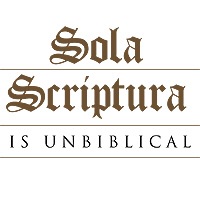And yet, not one of the biblical text you cited actually teaches sola scriptura. Rev. 22:19, for example, is referring specifically to "the prophecies of this book," that is, the book of Revelation itself. In any case, the Catholic Church has "added" nothing whatsoever to the Scriptures since the Church herself formally defined the canon of scripture in the 4th century A.D. No inspired writings have been "added" to the Bible since that time, nor will they be. The biblical canon is closed.
Gaudium de veritate,
Cruciform
+T+
I don't recall expressing a certainty in sola scriptura but rather am concerned about RCC tradition causing problems. In that, I am far from a lone skeptic in need of snuffing out. I already conceded we need oral tradition to interpret scripture and am aware catechism teaches that scripture is the "principal source".
If the RCC had a bit more sola and less oral then the gulf between Rome and the average catholic might close a bit.
Semantics. If not "adding" then corrupting confusing and misinterpreting. These are major concerns. You say they are invalid and cite catholic references supporting catholic doctrines. Some of them sound like editorials for fast track RCIA class consumption.
The measure of catholic truth seems (from the outside) to be whether the source is officially recognized. I know of little resembling the kind of fact checking, evaluation of internal and external coherency, consistency, and validity to which we subject scripture. As if there could be no other source, and, additionally, none of the human error that pervades every other aspect of our lives.. Right. Our great God gave me more common sense than that.
Isn't this a question of material sufficiency?


